Giuseppe Solari
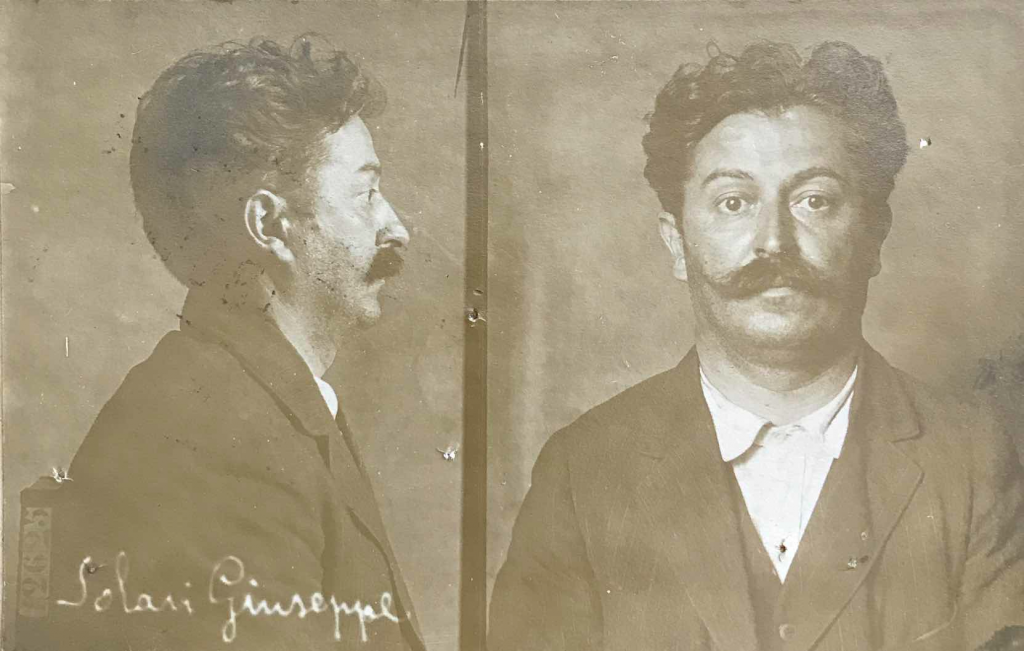
Born 1884, Genoa, Italy. Laborer; carpenter. Migrated to US 1905. Joined brother Giovanni in the US, who paid for his passage and his mother’s. Worked his way up from a pick-and-shovel worker to cabinetmaker; financially supported his mother, brother, sister, brother-in-law, and thirteen nieces and nephews. A close associate of Luigi Galleani, a distributor of anarchist literature, and and the secretary and treasurer of the anarchist Gruppo Autonomo in East Boston. Described by the US government as “one of the leading anarchists in New England” and by Italian authorities as “the deus ex machina of many meetings and conferences held among the subversives” of East Boston. Arrested May 17, 1918, for agitating against the military draft; “it required two automobiles to transport to the Federal Building the immense amount of literature and correspondence that was found in the premises” of his home. Deported June 24, 1919, with Galleani and others. Under surveillance by the Italian government, which noted that he maintained his anarchist ideas but recorded no radical activities on his part. Died 1937 in Genoa.
INS file 54241/22; CPC busta 4857
Peter Solocha (Penataley; Solocho)
Born 1893, Chernigov, Russia (present-day Ukraine). Autoworker. Migrated to US 1913. Joined the Union of Russian Workers branch in Bridgeport, Connecticut, in early 1919. Arrested during the first Palmer Raids, November 1919. Deported January 22, 1921. Subsequent activities unknown.
INS file 54707/243
Fedor Solenki (Федор Соленки; Fred; Solonika)
Born 1896, Volodymyr-Volynsky, Russia (present-day Ukraine). Ukrainian. Laborer. Migrated to US circa 1912. Joined the Union of Russian Workers in New London, Connecticut circa 1917. Arrested during the first Palmer Raids, November 1919. Claims to be illiterate, but in possession of radical literature. According to the Immigration Inspector, “even though his illiteracy or stupidity [should] be taken into consideration, I believe he is very dangerous, because his evidence shows he is easily led, as he admits attempting to secure members for the Union of Russian Workers.” Deported on the Buford. Subsequent activities unknown.
INS file 54709/241; FBI file OG 374549
Karl W. Sonntag (aka John Fensky)
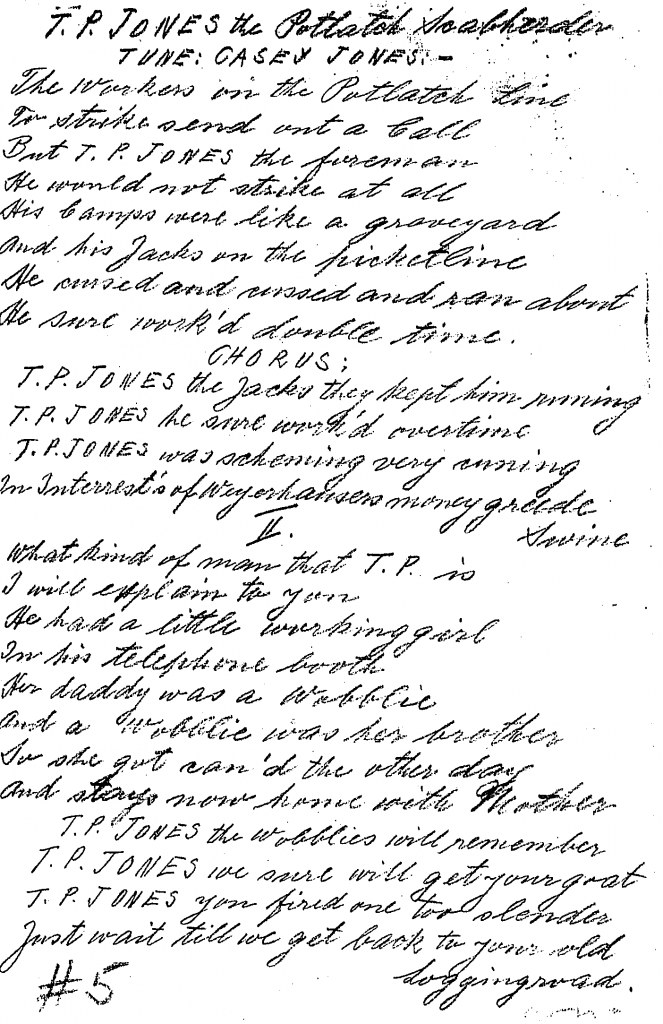
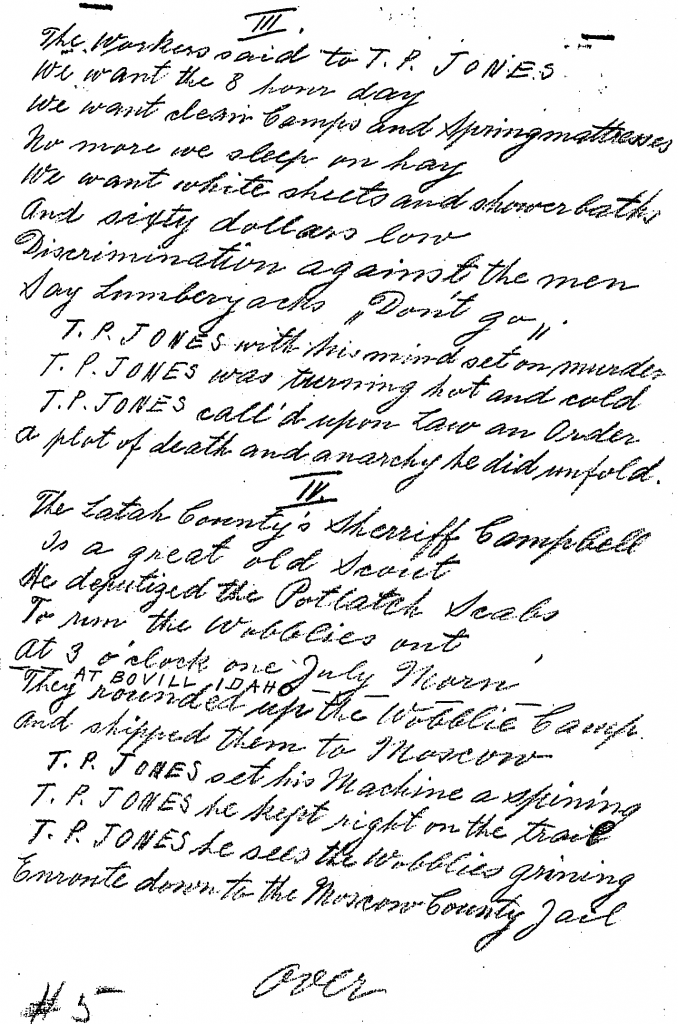
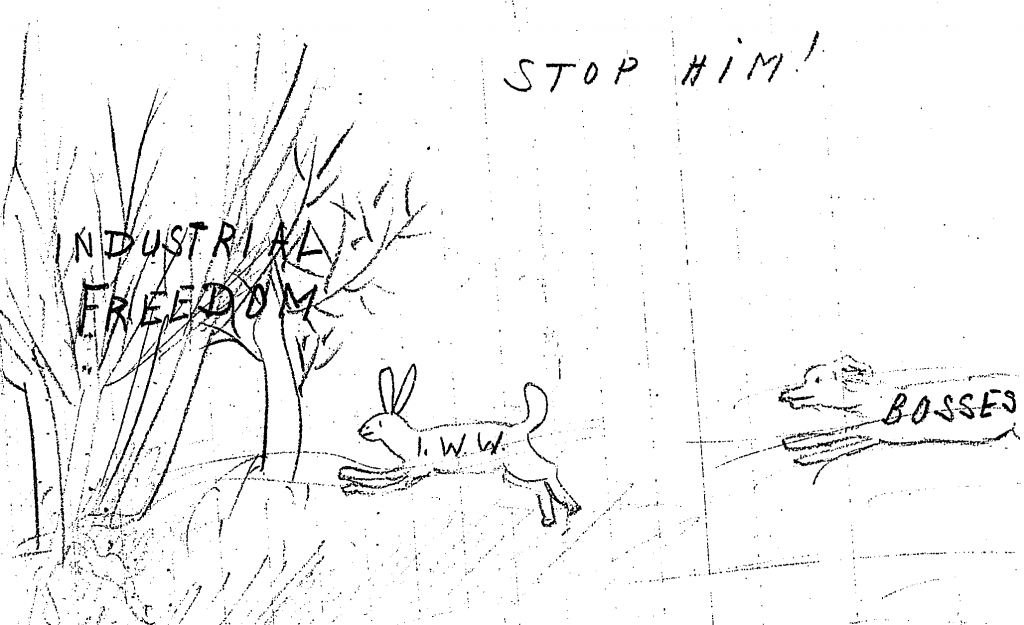
Born 1886, Breslau, Germany (present-day Wrocław, Poland). Polish. Served three years in the German navy. Laborer; machinist. Migrated to US 1908 (deserted ship in Galvaston, Texas). Sonntag was a skilled metalworker who patented a “tire-testing machine” (US patent no. 1068180) in 1913. Joined the IWW in Kansas City, Missouri, 1914; found work as a lumber worker and active in IWW strikes, for which he wrote radical songs. 1917 imprisoned for three months in Idaho for “criminal syndicalism” following his participation in a lumber strike at the Potlatch Lumber Company. Arrested in Walla Walla, Washington, February 8, 1918, after reported by the “Minute Men of Seattle” for unlawfully working within a federally-mandated “prohibited zone” along the waterfront from which Germans and other “enemy aliens” were barred. (Sonntag had secured employment by using the name “John Fesky” and claiming to be Austrian.) Upon discovery of his IWW membership, he was also charged with advocating the unlawful destruction of property, but then interned at Fort Douglas in Utah as an “enemy alien.” There he spent eight months in the disciplinary barracks for singing IWW songs, on what he described as a diet of “bread and water, and finally two leaden bullets in the leg.” Released on the condition that he “voluntarily depart” to German, which he did on June 23, 1919. He expected “to be busy in the so-called German revolution” upon his return, but he “found that I again got badly fooled,” and he subsequently made his way to Soviet Russia. There he found employment at the Felser & Co. factory in Nizhny Novgorod, where his workday was “sixteen hours and more.” After IWW leader William D. Haywood jumped his bail and fled to Russia in 1921, Sonntag, who had known Haywood in the United States, wrote him a letter of welcome, advising, “if this country needs anything it’s organizers and I think you’ll have a hell of a lot of work to do here…Let’s all do your best to make a paradise for workers out of this country.” No further information found.
INS file 54379/116
See also: Lewis S. Gannett, “Americans in Russia,” The Nation, August 17, 1921
Emilio Souto
Deported IWW member.
Charles Spangberg

Born 1887, Sweden. Lumber worker. Migrated to US 1905. Joined the IWW in February 1917. Arrested in Spokane, Washington, April 6, 1918. Deported November 4, 1918. January 1919 wrote to Secretary of Labor William B. Wilson inquiring why he had been deported and when he could be allowed to return to the US; there is no record of a reply being sent. Subsequent activities unknown.
INS file 54379/235
Andrew Jacob Spisak (aka A.J. Smith)

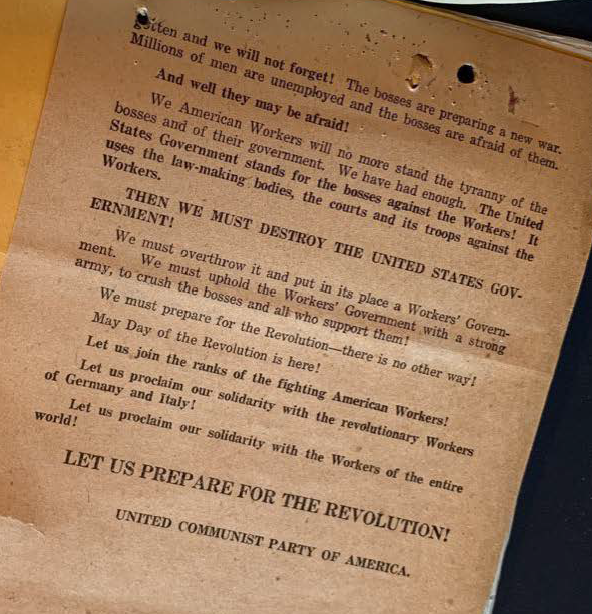
Born 1886, Rozgony, Austria-Hungary (present-day Rozhanovce, Slovakia). Metalworker; sign painter. Migrated to US 1904. 1912 lost his left eye and suffered a skull fracture from a workplace accident. Communist Party of America. Braddock, Pennsylvania. Arrested April 29, 1921 by members of the Edgar Thomson Steel Company’s private police force for posting radical May Day leaflets published by the United Communist Party; convicted of violating Pennsylvania’s sedition law, then turned over to immigration authorities. Released November 1922; detained again June 1923 and held on Ellis Island for seventeen months while awaiting a passport from Czechoslovakia, which was initially denied on the grounds that he had resided outside of Czechoslovakian territory for more than ten years and therefore lost his citizenship. Deported to Czechoslovakia, October 24, 1924. Subsequent activities unknown.
INS file 54809/601; FBI file BS 202600-1897
See also: Daily Worker, November 15, 1924